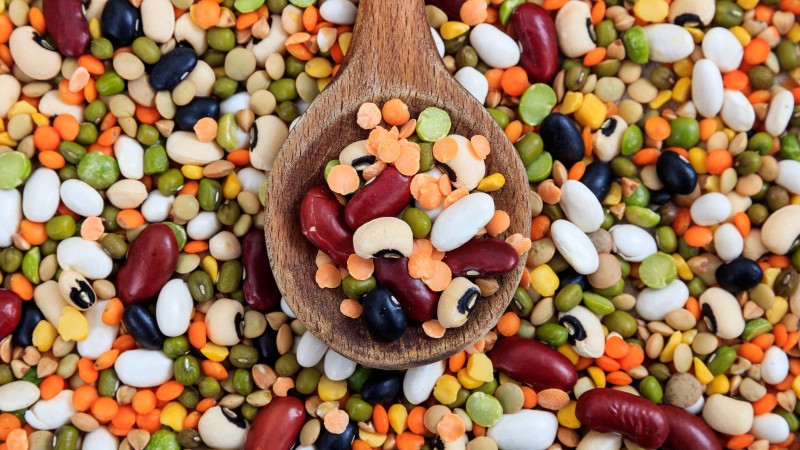Pulses: Turkey increases exports
September 7, 2023 at 12:23 PM ,
Der AUDITOR

Italy increases imports from Turkey tenfold
As announced by the Turkish Exporters Assembly, exports of Turkish oilseeds and pulses, as well as those for cereals and derived products, increased by 10.6% in the first seven months of 2023 compared to the same period in 2022. By the end of July 2023, exports had reached a value of USD 6.9 billion. The main destination countries were Iraq and the US, with Italy in third place, having increased its imports from Turkey tenfold. Another important export market is Saudi Arabia - shipments to the country brought in USD 124 million for Turkish exporters in the aforementioned period.
Export quota for chickpeas
Chairman of the Cereals, Pulses, Oilseeds and Products Sector Board of the Turkey Exporters Assembly, Ahmet Tiryakioğlu, recalled that the export restriction introduced by the Ministry of Commerce in 2021 to maintain both supply-demand balance and price stability in the face of drought, yield and quality problems was lifted in July, but noted:
“However, with the decision taken as of this month, the quota limit was again brought to the export of chickpeas at a time when we expect a high yield. We have a wide range of customers in chickpea exports. […] Turkey ranks second after India and has a very high potential in the global chickpea trade.
According to the UN Food and Agriculture Organization, Turkey ranks first in the world in terms of lentil cultivation area, and its share in the global trade volume, which is around USD 3.5 billion, is over 15%, according to 2022 figures. According to the previous year's data of TURKSTAT, the consumption per capita in Turkey was at the level of 5 kg, which means that nearly half a million tons of lentils are used in domestic consumption. Last year, the increase in lentil production areas reaching 7 million acres has been a factor that enabled us to increase production in many regions despite the earthquake and flood disasters we experienced in the process we left behind.”
Yields up by almost a third
Veysel Memiş, Chairman of the Board of the Mediterranean Cereals, Pulses, Oilseeds and Products Exporters' Association, states that the sector's greatest expectation is to end export restrictions and quota practices, and to expand measures to promote the cultivation of pulses on fallow land. He adds that chickpea and red lentil yields have increased by 30% in the new season compared to last year: “The estimated yield is expected to reach 580.000 mt for chickpeas and 400.000 mt for red lentils. When we evaluate the existing stocks in pulses products, the volume will be above the needs of our country. However, the quota application continues in chickpea exports. As for red lentils, we can export within the scope of Inward Processing Regime (DIR). Therefore, we want the restrictions on the export of our pulses products, which exceed the domestic need, to be lifted.”
View more
- price charts





